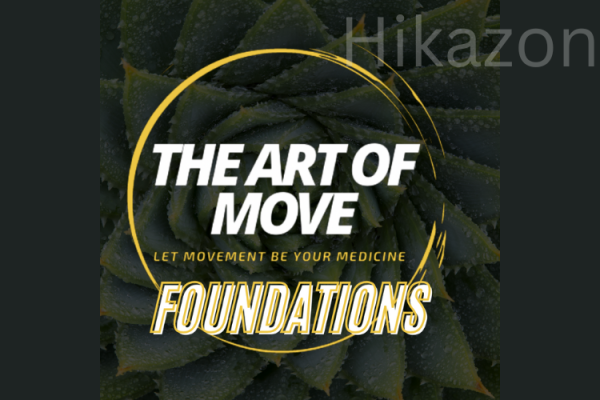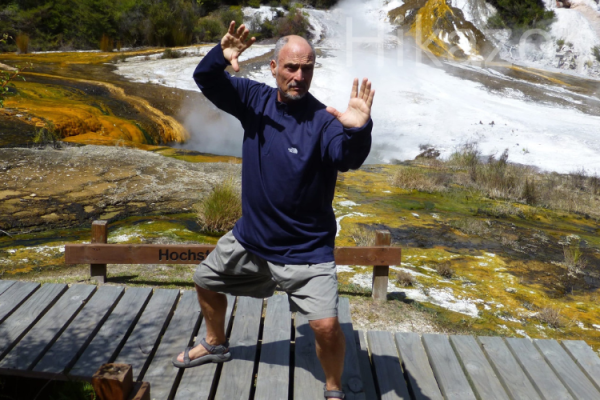The Culture & Practice of the Yama By Rina Deshpande
$6.00
The Culture & Practice of the Yama By Rina Deshpande – Digital Download!
Content Proof:
The culture & practice of the yama
Introduction
In an age where yoga has transcended its spiritual roots and become a global phenomenon, the need for a deeper understanding of its original teachings grows ever more crucial. Rina Deshpande’s course, “The culture & practice of the yama,” stands at the intersection of historical insight and practical application. Over six weeks, participants embark on a journey that unveils the yama, the ethical guidelines laid out in Patanjali’s Yoga Sutras, which form the essential framework of the eightfold path of yoga. Through an array of engaging lectures, storytelling, and holistic practices, this course cultivates a nuanced appreciation of these ancient principles, encouraging practitioners to embody them in their daily lives.
Understanding the yama: A Deeper Dive
The Five Yama
The yama consists of five key principles that guide ethical behavior and interpersonal relationships. Below is a breakdown of each value along with its significance in both yoga and daily life:
| Yama | Sanskrit Meaning | Core Principle |
| Ahimsa | Non-harming | The practice of non-violence, not only in action but also in thoughts and words. |
| Aparigraha | Non-grasping | Letting go of greed and possessions, promoting simplicity and contentment. |
| Asteya | Non-stealing | Emphasizing honesty and integrity, in spirit as well as action. |
| Brahmacharya | Path of the Absolute | Encouraging self-restraint and focusing energy towards higher consciousness. |
| Satya | Truth | The pursuit of truthfulness in all interactions and self-reflection. |
These principles, while ancient, remain remarkably relevant. Deshpande’s approach invites participants to explore these tenets in a manner that blends traditional philosophy with contemporary context. The course illustrates how ahimsa manifests in everyday interactions, promoting kindness and compassion in a world often marred by conflict. The focus on aparigraha serves as a profound reminder in our consumer-driven society, inviting individuals to question their relationship with material possessions.
The Course Structure
Deshpande’s course unfolds over six weeks, with each lesson dedicated to exploring one of the yama in depth. Participants engage not just through lectures but through practical exercises that incorporate asanas (postures) and meditation, essential tools for internalizing these ethical guidelines into physical practice. This integration of theory and practice is crucial as it shapes how participants perceive yoga not merely as a physical exercise, but as an ethical lifestyle choice.
The lesson format employs a variety of teaching techniques, including:
- Lectures: In-depth discussions that unpack the historical and cultural context of each yama.
- Storytelling: Narrative reflections that illustrate the practical implications of these values.
- Holistic Practices: Integrating mindfulness and asanas to reinforce the guiding principles of yoga.
By diversifying instructional methods, Deshpande fosters a rich learning environment where participants can relate personally to the teachings, making them more likely to apply the principles in day-to-day scenarios.
The Importance of Cultural Context
Emphasizing Authenticity
A pivotal aspect of Deshpande’s course is its emphasis on cultural awareness and authenticity. In an era of widespread cultural appropriation, where practices are often divorced from their origins, this program serves as a counterbalance. By embedding cultural roots within the curriculum, participants are guided to view yoga through a lens that honors its origins rather than commodifying it. This approach not only deepens the understanding of the practice but also ensures that the teaching remains respectful and true to its intended purpose.
Deshpande’s background as an educator, artist, and poet lends the course a unique, rich texture. By weaving personal narratives and artistic expressions into the teachings, she invites participants to connect with the yama on a visceral level encouraging reflection and emotional engagement. This emotional dimension transforms theoretical knowledge into lived experience, fostering a genuine embrace of yoga as a holistic practice.
Bridging Ancient Teachings with Modern Life
The relevance of the yama extends well beyond the yoga mat, providing frameworks for managing contemporary life challenges. For instance, satya, or truthfulness, resonates deeply in a world punctuated by misinformation. Deshpande encourages participants to cultivate honesty not only in how they communicate but also in their self-reflection practices. This authentic engagement with oneself often catalyzes personal growth and ethical clarity, helping practitioners navigate life’s complexities more skillfully.
Moreover, the lesson on brahmacharya, or self-restraint, strikes a chord in our hyper-connected environment. In a culture that often glorifies excess, reflecting on the balance of energy and intention becomes an invaluable exercise. The insights offered in this course empower participants to reclaim their focus, directing energy toward meaningful pursuits that align with their values.
Enhancing Professional Development
Continuing Education Opportunities
The course “The culture & practice of the yama” is officially recognized by Yoga Alliance, permitting practitioners to earn continuing education hours. This tangible benefit adds an extra layer of value for those pursuing professional development within the yoga community. By offering structured self-study assignments and rich audiovisual resources, participants can enhance their linguistic skills and deepen their theoretical understanding, setting the stage for advanced practice and teaching opportunities.
The intertwining of professional development with rich cultural learning ensures that participants not only grow as individuals but also enhance their competencies as educators or practitioners. This blend of personal enrichment and professional advancement reflects a holistic approach to yoga that Deshpande embodies a true alignment of ethics, practice, and cultural consciousness.
Engaging with a Community of Learners
Moreover, the course promotes the formation of a supportive learning community. Participants are encouraged to share their insights and personal experiences, fostering connections that extend beyond the digital classroom. This sense of belonging enhances the learning experience, reminding individuals that they are part of a larger movement, linking them to fellow seekers of knowledge and truth.
As learners engage in reflective assignments and discussions, they cultivate a richer, multi-dimensional perspective on yoga. Such a community-oriented approach not only strengthens individual practice but also inspires collective growth and understanding of the yama.
Conclusion
Rina Deshpande’s “The culture & practice of the yama” offers an immersive experience that transcends traditional yoga education. Through a careful balance of ethical reflection, cultural awareness, and practical engagement, the course provides a profound opportunity for personal and professional development. As participants explore the depths of the yama, they cultivate a connection to a practice that honors its origins while remaining relevant to modern life challenges, fostering a yoga that is not merely performed but lived. Engaging deeply with these timeless principles equips practitioners with the tools they need to navigate their lives ethically, mindfully, and authentically, resonating with the very essence of yoga itself.
Frequently Asked Questions:
Business Model Innovation: We use a group buying approach that enables users to split expenses and get discounted access to well-liked courses.
Despite worries regarding distribution strategies from content creators, this strategy helps people with low incomes.
Legal Aspects to Take into Account: Our operations’ legality entails several intricate considerations.
There are no explicit resale restrictions mentioned at the time of purchase, even though we do not have the course developers’ express consent to redistribute their content.
This uncertainty gives us the chance to offer reasonably priced instructional materials.
Quality Assurance: We guarantee that every course resource you buy is exactly the same as what the authors themselves are offering.
It’s crucial to realize, nevertheless, that we are not authorized suppliers. Therefore, the following are not included in our offerings:
– Live coaching sessions or calls with the course author.
– Entry to groups or portals that are only available to authors.
– Participation in closed forums.
– Straightforward email assistance from the writer or their group.
Our goal is to lower the barrier to education by providing these courses on our own, without the official channels’ premium services. We value your comprehension of our distinct methodology.
Be the first to review “The Culture & Practice of the Yama By Rina Deshpande” Cancel reply
You must be logged in to post a review.

 Metamorphosis (Online Course) by Stefan's School of Movement
Metamorphosis (Online Course) by Stefan's School of Movement 
















Reviews
There are no reviews yet.